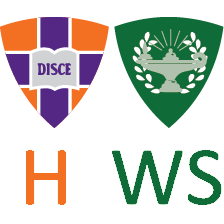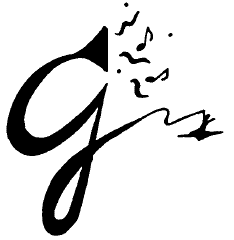Geneva Concerts Presents:
Friday, 1 February 2002, 8:15 PM
The Canadian Chamber Ensemble
"Bach and Beyond"

Daniel Warren, Assistant Conductor
Leslie De'Ath, harpsichord
The Program
BACH: Brandenburg Concerto No. 2 in F Major
BACH: Brandenburg Concerto NO. 5 in D Major
Intermission
BRAHMS: Serenade No. 1
Program Notes

Johann Sebastian Bach
Born: 1685. Died: 1750.
Brandenburg Concerto No. 2 in F Major
The "concerto grosso" form was made famous in the Baroque era and the standard structure
for orchestral works - though we should understand that the Baroque "orchestra" was, in
general, a chamber group of perhaps five instruments. In the Baroque concerto, variety of
texture is achieved by pitting a group of soloists against the orchestra; they alternate, and
sometimes play off lines against each other, though more usually the soloists do that among
themselves, and then the orchestra comes in with a less complex role to play. In No. 2, the
spectacular high-flying clarino trumpet part is what arouses the main attention, especially
when the modern, brilliant instrument is used. We use the modern piccolo trumpet - which
means that you merely need a virtuoso instead of a lifelong baroque specialist to play the
fiendish trumpet line - whose insistent, cutting-edge brilliance often blinds listeners to the
fact that the three other soloists are in there with wonderful contrapuntal lines as well -
recorder (or flute, as tonight), violin and oboe. They all contribute, along with strings and
harpsichord, to a boisterously exuberant piece whose wonderful energy has a momentum that
makes them quite irresistible - express-train baroque! Between the two brilliant outer
movements, however, we have the subtle beauty of the adagio with its gently sighing
interplay between flute and oboe - another of the glories of this era, and reminding us that
Bach could write soulful melodies with the very best of any age. The finale then goes on a
contrapuntal rampage, with melodies and counter-melodies weaving in and out in inimitable
fashion. This is top-drawer Bach, and it's just unbeatable!
Brandenburg Concerto No. 5 in D Major
What's special about this concerto is the revolutionary harpsichord part. This was the first
fully solo employment of the harpsichord in a concerto, which had previously been used in
ensembles strictly as a "continuo" instrument, supporting the music but not contributing to
the melody or counterpoint. This experimental expansion of the harpsichord's role was
probably inspired by the arrival of a new fine instrument at the Court of Cšthen - Bach was a
great appreciator of his instruments, and understood their mechanical properties very well. In
the solo group of three instruments, the harpsichord is rather dominant, though the three in
general function as a unit against the orchestra as usual. But a surprise awaits: late in the
otherwise-normal first movement, the harpsichord launches into a cadenza the like of which
had never been seen before, and which still astonishes, lasting nearly five minutes and
requiring major-league virtuosity on the part of the soloist. It rises to a tremendous pitch of
drama, then relaxes to repeat the movement's good-natured main ideas, which are
wonderfully peppy and exultant. In the slow movement, the solo group stands alone, making
a chamber trio movement of a profound, melancholy beauty -really, this movement by itself
would be one of the glories of the literature. But the finale utterly dispels that mood in a burst
of rollicking high spirits, with a catchy, jaunty main tune and Bach's customary display of
fabulous counterpoint.

Johannes Brahms
Born: 1833. Died: 1897)
Serenade in D, op.11
This work has an interesting history. It started out life as a
serenade after the manner of Haydn, or at least in the spirit of Haydn, with
nonet instrumentation: flute, two clarinets, horn, bassoon and strings. But
when he tried it out for Clara Schumann, she declared that it needed to be
rewritten for full orchestra, as Brahms eventually came to agree and
proceeded to do so. In that form, it has become a popular concert piece, and
indeed one of the great things of its (rare) kind in the literature. So
successful is it, in fact, that it is very hard to think of it in chamber
terms. But Mr. Boustead has restored substantially the original form, which
is how we hear it tonight.
The whole piece is suffused with a pastoral, outdoors atmosphere, and there
is none of the brooding, melancholy, wistful Brahms of later years in this
joyous, outgoing music. Opening with a delightful horn melody over bagpipe
drone, it soon blossoms out in full cry with that theme, then shifts over to
a remarkable one spanning more than two octaves; later a rollicking woodwind
theme in triplets continues the mood. The first of the two wonderful
scherzos is chromatic and witty, and in the middle there's a warm, spirited,
wholly engaging trio. Only the adagio is at all reserved, but it isn't
sombre or melancholy, merely dignified and expressive (and in full sonata
form - a rarity for such a movement in such a piece). The minuets 1-2, in
classical fashion, are such delightful pieces that they are often extracted
and played by themselves. The intriguing clarinet theme is perfectly set
against an octave figure in the bassoons - an enchanting combination; minuet
II provides a plaintive but piquant contrast. Then there's a second scherzo
with one of the great horn figures, broad, outgoing, redolent of the hunt
atmosphere. The energetic finale opens with a tight-reined rondo theme in
dotted rhythm, with the alternating sections providing contrast and more
work for the horns (Brahms' father was a horn player, a circumstance that
probably occasioned his magnificent Horn Trio of some years later.) The
piece closes with a glorious coda; you can't retain all of that with a
modest-sized ensemble, but all the same it's a fine ending.

Daniel Warren
Conductor
Daniel Warren is currently the Assistant Conductor of the Kitchener-Waterloo
Symphony and has played in the trumpet section for the past seventeen years.
During that time he has performed numerous solos and concerti including the
Concerto for Trumpet and Orchestra by Phil Nimmons, first touring the piece
and then recording it for a CBC SM5000 CD. He performed Johnny Cowell's
Concerto for Trumpet and Orchestra which was taped for a national Television
broadcast.
Daniel Warren is currently the Music Director of the Wellington Winds and "Brassfest" at Wilfred
Laurier University. For two years he was Music Director/Conductor of the
Southampton Festival Winds during the Southampton Summer Music Festival. Mr.
Warren's musical training has included study at the University of Toronto,
The Conductors Institute of South Carolina and the Orford Centre for the
Performing Arts in Quebec. His principal teachers include Raffi Armenian,
Victor Feldbrill, Donald Portnoy,and Paul Vermel. As a Symphonic Musician
and Trumpet Soloist Mr. Warren has, for the last sixteen years, performed in
North, Central and South America, France Switzerland, Germany, Holland and
Great Britain with The Toronto Symphony Orchestra, The Kitchener-Waterloo
Symphony and the Canadian Chamber Ensemble.
He resides near Guelph with his lovely
wife Rosanne and his two children William and Lucy in a house he built
himself (with a lot of help!).
The Canadian Chamber Ensemble
Stephen Sitarksi, Violin
Katherine Huble, Violin
Jarek Polak, Violin
David Rose, Viola
John Helmers, Cello
Janet Auger, Bass
Thomas Kay, Flute
James Mason, Oboe
Ross Edwards, Clarinet
Barbara Hankins, Clarinet
Cedric Coleman, Bassoon
Nina Brickman, Horn
Larry Larson, Trumpet
Leslie De'Ath, Harpsichord
Return to Geneva Concerts Current Home Page.











